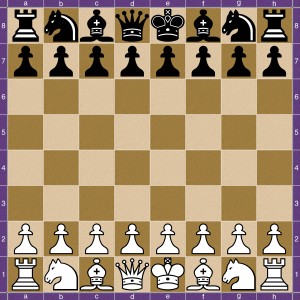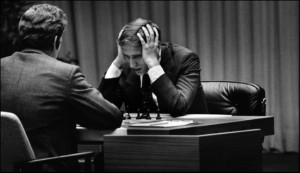
A response to the problem of natural suffering positing that God, like a Chess master, may have reasons people can’t understand are fraught with failure.
I return here to a discussion about the problem of natural suffering — namely that the existence of egregious natural suffering in the world serves as evidence against an all-loving, all-powerful, and all-knowing god — in light of a popular line of apologetics offered by theists – that God is like a Chess grandmaster. Perhaps you heard or participated in a conversation such as that which follows:
Atheist: I can’t understand how you can believe in an all-loving, all-powerful, and all-knowing god when millions have died to natural disasters, birth defects, and diseases which have nothing at all to do with human action. What possible reasons could such a God have for not only permitting such suffering, but also designing the universe in such a way? If this suffering were not around the world would be a much better place.
Theist: We just can’t understand the mind of God. For all we know, God has reasons beyond our understanding – those that we, in a lowly state of intelligence, in relation to an all-knowing god, just can’t comprehend. God is like a Chess grandmaster playing a game against a beginner. The beginner may look at a grandmaster’s Chess move and not understand the reasoning, but the grandmaster has really good reasons the beginner can’t understand. God’s like that – a grandmaster in comparison to us as beginning Chess players. For us to question the motives of God, while knowing so little about the universe or why something may fare well in the future, is a mistake.
I responded to similar lines of reasoning offered by theists in various debates [1, 2, and 3], discussions [4 and 5], and blog entries [6 and 7], but would like to respond to this specific reasoning – positing God as a Chess grandmaster and humans as novices unable to understand advanced Chess tactics.
The relationship of knowledge between a beginning Chess player and a grandmaster is indeed vast as the theist supposes; a grandmaster will have levels of Chess knowledge a beginner could not fathom. However, following a considerable amount of study, discipline, and practice, at least some Chess players can bridge the gap between novice and grandmaster (or at least climb quite high in ratings and understanding).

Advanced Chess players — including grandmasters — can agree that a particular move was the best of all options. Computers, too, showing agreement with grandmasters, can analyze Chess scenarios and discover which move can dominate an opponent. While one particular move may not be the best (there may be several) in a particular situation, many situations exist in which one move is the ‘best of all possible worlds’ – particularly those which lead to forced checkmates. While the reasoning justifying Chess tactics may not be understood by all Chess players, results can be demonstrated and are irrefutable.
Reasoning behind a particular Chess move is not something one supposes — which may exist — but rather is something which does exist and is accessible to at least some. While not all Chess players will understand certain Chess reasoning, some can explain the reasoning, apply it to a different game, and teach others so they may understand. Even without understanding finer points, a beginner cannot reasonably deny the conclusion that he/she was annihilated on a Chessboard following a game with a grandmaster.
In the case of God and an future which presumably includes some undetectable justifying reasons for God’s permitting of suffering and its inclusion in the universe, theists simply suppose reasons exist and that the future will be better that it would had natural suffering never existed. One does not need a type of faith to see results and/or reasoning pertaining to Chess tactics. The grandmaster can show that a Chess strategy resulted in a victory and explain the reasoning. We have no god available to show us a future and offer an explanation.
The beforementioned reasoning presented by the theist suffers additional challenges.
Most humans agree that natural disasters are a very bad occurrence – and for good obvious reasons. If humans could stop natural disasters, they would…and humans try to at least mitigate harm and prevent natural suffering by erecting flood walls, creating medicine, etc. A very small percentage of the population may understand logic behind a grandmaster’s Chess tactics, but a very large percentage of the population understands that natural suffering is horrible; it certainly doesn’t take extreme amounts of study, discipline, and practice to arrive at the conclusion that natural suffering is a bad thing – the knowledge, much unlike that of a Chess grandmaster, is not in the hands of a select few [or one — otherworldly unfathomable knowledge base — in the case of a god.
As always, feel free to comment below.